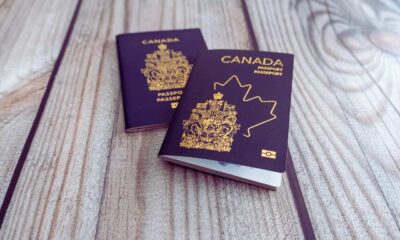Study
Canadian Provinces to Set Enrolment Control for International Students

In a recent revelation, Immigration Minister Marc Miller addressed the critical issue of the surging number of international students in Canada, urging provinces to set active enrolment control in managing this influx.
According to Minister Miller, Immigration, Refugees, and Citizenship Canada (IRCC) harbor concerns about the escalating volume of international students, emphasizing the need for provinces to establish sustainable enrollment levels. The year 2022 witnessed over 800,000 international students in Canada, with projections suggesting a surge to 900,000 by the end of 2023—an unprecedented threefold increase from 2012.
Role of DLIs
Education in Canada, especially post-secondary education, falls under provincial jurisdiction. Designated Learning Institutions (DLIs) are pivotal in this landscape, and Minister Miller has called for robust discussions between provinces and DLIs, particularly those profiting excessively from the current system.
The minister voiced concerns about the integrity of the system, citing institutions that exploit the permissive DLI model, attracting students with promises of quality education but falling short of delivery.
When questioned about the possibility of a cap on study permits, Minister Miller expressed openness to the idea if provinces fail to take corrective action. However, he clarified that a one-size-fits-all solution is not the answer, indicating a more nuanced approach.
DLIs play a crucial role in the admission of international students. Each province has distinct accreditation requirements, with Ontario leading the way with 529 DLIs, followed by Quebec (443), British Columbia (277), and Alberta (158).
Some institutions, however, have been found to issue more Letters of Acceptance (LOAs) than their capacity, banking on the assumption that not all students will proceed with study permit applications. Instances like Northern College in Ontario revoking admission for 504 international students highlight the need for oversight.
IRCC’s Measures to Meet the Challenge
IRCC has taken steps to enhance the integrity of the International Student program. DLIs are now required to verify LOAs promptly after a student applies for a study permit. Non-compliance within 10 days results in permit cancellation, accompanied by a refund.
The Trusted Framework Agreement with DLIs is another initiative. Institutions demonstrating reliability in sustainable intake, regulatory compliance, and student support will benefit from expedited permit processing. Proposed eligibility criteria include international student retention rates, on-time program completion rates, scholarships for students from less-developed countries, revenue percentages from international students, and DLI-administered housing availability.
In December, IRCC announced a significant increase in the cost-of-living requirement for study permit applicants, from $10,000 to $20,635, aimed at assisting international students in meeting the actual cost of living in Canada.























